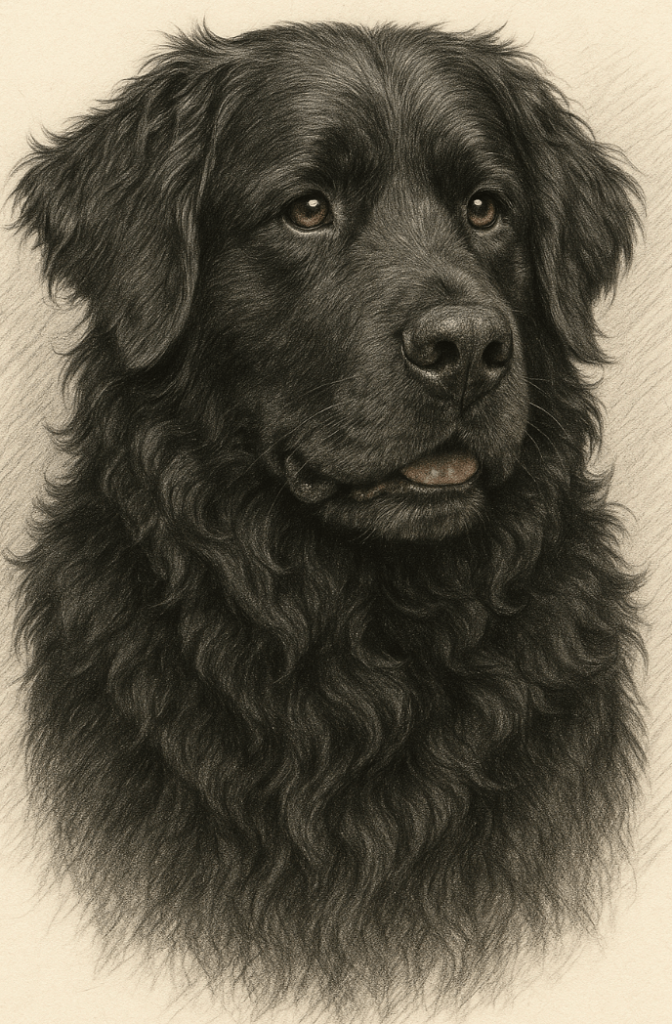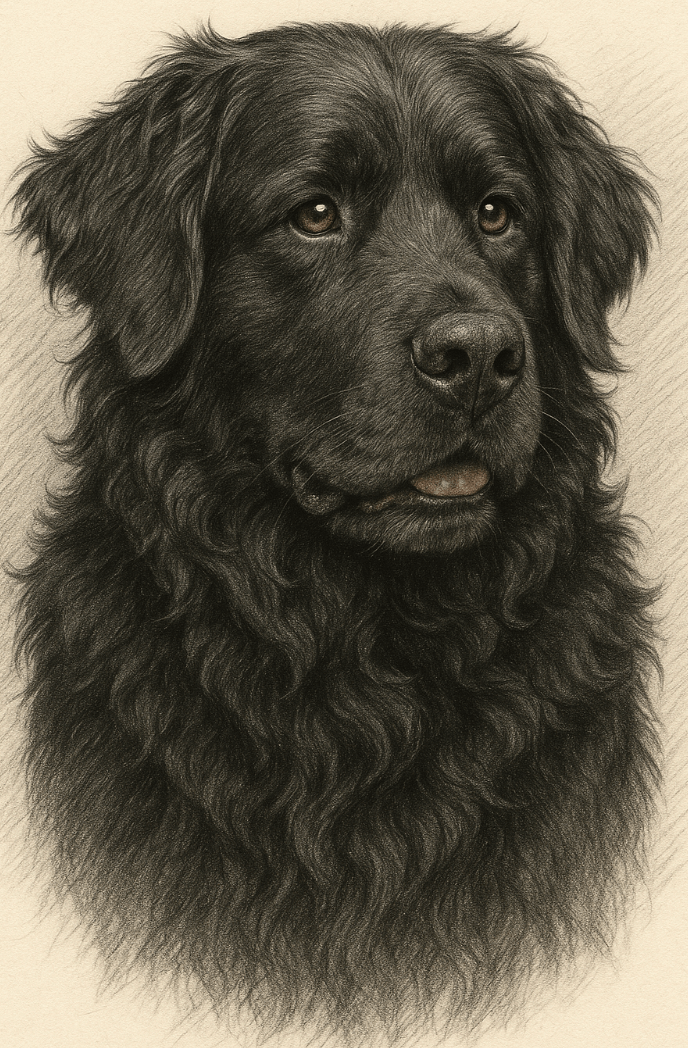Black Bernese Mountain Dog: A Unique and Stunning Variation
The Bernese Mountain Dog is a beloved breed known for its striking tri-color coat, friendly temperament, and gentle nature. However, there’s a rare and captivating variation that stands out from the crowd—the black Bernese Mountain Dog. These majestic canines retain all the wonderful traits of their traditional counterparts but boast an entirely black coat that exudes elegance and charm. Whether you’re a seasoned dog owner or considering adding one of these stunning dogs to your family, understanding what makes the black Bernese Mountain Dog special is essential. In this blog post, we’ll explore their origins, characteristics, care needs, and more to help you appreciate this extraordinary variation fully.
Key Characteristics of the Black Bernese Mountain Dog
The black Bernese Mountain Dog shares many qualities with its tri-colored relatives but has a few unique traits worth noting. Here’s an overview of what sets them apart and makes them so appealing.
Distinctive All-Black Coat:
Unlike the classic tri-color pattern, black Bernese Mountain Dogs have a sleek, solid black coat that gives them a regal appearance.Gentle and Affectionate Nature:
These dogs are known for their calm demeanor and deep bond with their families, making them excellent companions.Large and Sturdy Build:
Standing tall and muscular, they embody the strength and grace typical of the Bernese Mountain Dog breed.Intelligent and Trainable:
With their sharp minds and eagerness to please, black Bernese Mountain Dogs excel in obedience training and learning new commands.Loyal and Protective Instincts:
While not overly aggressive, they are naturally protective of their loved ones, serving as both guardians and cuddly friends.
These characteristics make the black Bernese Mountain Dog a remarkable addition to any household, blending beauty with brains and heart.
Caring for Your Black Bernese Mountain Dog
Owning a black Bernese Mountain Dog comes with specific responsibilities to ensure their health, happiness, and longevity. Here are some practical tips to keep your furry companion thriving.
Regular Grooming Sessions:
Their thick double coat requires frequent brushing to prevent matting and reduce shedding, especially during seasonal changes.Balanced Diet and Nutrition:
Feed them high-quality food formulated for large breeds to support joint health and maintain a healthy weight.Daily Exercise Routine:
Despite their laid-back personality, these dogs need moderate exercise like walks or playtime to stay fit and mentally stimulated.Routine Veterinary Checkups:
Schedule regular vet visits to monitor for common health issues such as hip dysplasia, bloat, or cancer.Socialization from an Early Age:
Introduce them to different people, animals, and environments early on to foster confidence and good behavior.
By following these guidelines, you can provide a loving and nurturing environment where your black Bernese Mountain Dog will thrive.
Check this guide 👉Saint Bernard Bernese Mountain Dog Mix: Best 7 Tips!
Check this guide 👉Bernese Mountain Dog Poodle Mix: Best 7 Expert Tips!
Check this guide 👉Rhodesian Ridgeback Bernese Mountain Mix: Best 7 Tips!

Pros of Owning a Black Bernese Mountain Dog | Cons of Owning a Black Bernese Mountain Dog |
|---|---|
Striking all-black coat | Prone to heavy shedding |
Gentle and affectionate temperament | Shorter lifespan compared to smaller breeds |
Intelligent and easy to train | Susceptible to certain health conditions |
Great with children and other pets | Requires significant grooming effort |
Loyal and protective yet non-aggressive | Needs ample space due to their large size |
Health Considerations for Black Bernese Mountain Dogs
Like all Bernese Mountain Dogs, the black variety is predisposed to certain health issues that potential owners should be aware of. Being proactive about their care can extend their lifespan and improve their quality of life.
Hip and Elbow Dysplasia:
This genetic condition affects joint mobility and can lead to arthritis if left untreated.Bloat (Gastric Torsion):
A life-threatening condition where the stomach twists; feeding smaller meals and avoiding vigorous activity after eating helps prevent it.Cancer Risk:
Unfortunately, Bernese Mountain Dogs have a higher susceptibility to various forms of cancer, which often impacts their longevity.Heart Conditions:
Some individuals may develop cardiomyopathy or other heart-related ailments requiring veterinary intervention.Allergies and Skin Issues:
Their thick coats can trap allergens, leading to skin irritation or hot spots without proper grooming.
Understanding these risks allows you to take preventative measures and seek timely treatment when needed.
Training Tips for Your Black Bernese Mountain Dog
Training a black Bernese Mountain Dog is a rewarding experience thanks to their intelligence and willingness to learn. Follow these tips to create a positive and effective training routine.
Start Early:
Begin training and socialization as puppies to establish good habits and build trust.Use Positive Reinforcement:
Reward desired behaviors with treats, praise, or toys to encourage repetition and enthusiasm.Keep Sessions Short and Fun:
Their attention span is limited, so aim for 10-15 minute sessions filled with engaging activities.Focus on Basic Commands First:
Teach foundational commands like “sit,” “stay,” and “come” before moving on to advanced tricks.Be Patient and Consistent:
Avoid harsh corrections; instead, use consistent guidance to help them succeed.
With patience and positivity, your black Bernese Mountain Dog will become a well-behaved and cherished member of your family.
Common Misconceptions About Black Bernese Mountain Dogs
Several myths surround black Bernese Mountain Dogs, often leading to confusion among potential owners. Clarifying these misconceptions helps paint a clearer picture of the breed.
Myth: They Are a Separate Breed:
The black coat is simply a color variation within the Bernese Mountain Dog breed, not a distinct type.Myth: They Are More Aggressive:
Their temperament is identical to tri-color Bernese Mountain Dogs—gentle, friendly, and non-aggressive.Myth: Their Coat Requires Less Maintenance:
Despite its uniform color, their coat still demands regular grooming to stay healthy and shiny.Myth: They Live Longer Than Other Variations:
Their lifespan aligns with the breed standard, unaffected by coat color.Myth: They Are Easier to Train:
While intelligent, they share the same training requirements as other Bernese Mountain Dogs.
Understanding these truths ensures realistic expectations when considering a black Bernese Mountain Dog.
Activities Perfect for Your Black Bernese Mountain Dog
Engaging your black Bernese Mountain Dog in fun activities strengthens your bond and keeps them physically and mentally active. Here are some ideas tailored to their abilities and preferences.
Leisurely Walks in Nature:
Their sturdy build and calm disposition make them ideal hiking or walking partners on scenic trails.Tug-of-War Games:
This interactive game satisfies their playful side while strengthening their muscles.Obedience Competitions:
Their intelligence and trainability shine in structured events like agility or obedience trials.Fetch in the Yard:
A simple game of fetch provides exercise and mental stimulation in a safe environment.Relaxation Time Indoors:
Bond over quiet moments together, as they also enjoy lounging and being close to their humans.
These activities cater to their versatile personalities, ensuring a balanced and happy lifestyle.
How to Find a Reputable Breeder for a Black Bernese Mountain Dog
Finding a responsible breeder is crucial to adopting a healthy and well-socialized black Bernese Mountain Dog. Keep these tips in mind during your search.
Research Pedigree and Genetics:
Ensure the breeder conducts health screenings for hereditary conditions like hip dysplasia and cancer.Visit the Breeding Facility:
A reputable breeder will welcome you to see where their dogs are raised and interact with the puppies.Ask About Parent Dogs:
Meeting the parents provides insight into the puppy’s potential temperament and physical traits.Check Certifications and Reviews:
Look for affiliations with recognized kennel clubs and read testimonials from previous buyers.Avoid Overly Pushy Sellers:
Ethical breeders prioritize finding the right home over making quick sales.
Taking these steps ensures you bring home a happy, healthy companion who will enrich your life for years to come.
Frequently Asked Questions About Black Bernese Mountain Dogs
Are black Bernese Mountain Dogs rare?
Yes, they are a less common variation of the breed due to their recessive gene combination.
Do they require more grooming than tri-color Bernese Mountain Dogs?
No, their grooming needs are similar, though their all-black coat may show dirt less noticeably.
What is their average lifespan?
Typically, they live between 6-8 years, which is consistent with other large breeds.
Are they good with kids?
Absolutely! Their gentle and patient nature makes them excellent companions for children.
Can they adapt to apartment living?
While possible, they thrive better in homes with spacious yards due to their size and energy levels.
Embracing Life with a Black Bernese Mountain Dog
The black Bernese Mountain Dog is a truly unique and enchanting variation of this already-loved breed. With their striking appearance, loyal personality, and gentle spirit, they bring joy and companionship to any home fortunate enough to welcome them. However, owning one requires commitment to their care, including grooming, training, and addressing potential health concerns. By understanding their needs and providing a loving environment, you can enjoy a fulfilling relationship with your black Bernese Mountain Dog for years to come. If you’re ready for the responsibility, this magnificent canine will undoubtedly enrich your life in countless ways.
Pemphigus Erythematosus in Cats: Best 7 Expert Tips! – Learn to recognize symptoms, manage flare-ups, and improve your cat’s quality of life.
Pemphigus Erythematosus in Dogs: Best 7 Expert Tips! – Discover causes, symptoms, and treatment options to manage this autoimmune skin condition effectively.
Cat Tympanic Membrane: Best 7 Expert Tips! – Learn how to protect your cat’s eardrum, spot issues early, and ensure lifelong auditory health.
Dog Tympanic Membrane: Best 7 Expert Tips! – Learn how to protect your dog’s eardrum, spot issues early, and ensure lifelong ear health with expert advice.





